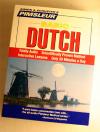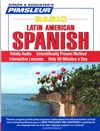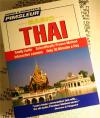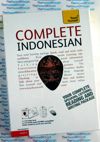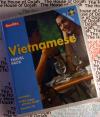Teach Yourself Beginners Dutch - Getting Started in Dutch - 2 CD Audio and Book
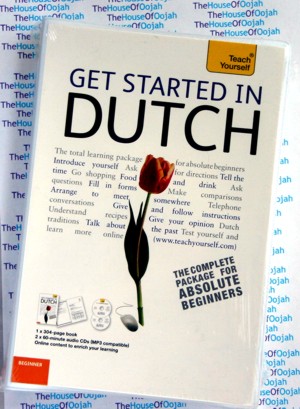
Teach Yourself Beginners DutchGet Started in DutchBook and 2 Audio CDsOther Dutch Language Learning Audio Book CDs Click here |
 |
Teach Yourself Beginners Dutch - Get Started in Dutch - 2 Audio CDs and BookAre you looking for a course in Dutch written for the absolute beginner who has no experience of learning a foreign language? Get Started in Dutch will give you the confidence to communicate in Dutch. Now fully updated to make your language learning experience fun and interactive. You can still rely on the benefits of a top language teacher and our years of teaching experience, but now with added learning features within the course and online.The emphasis of the course is placed on communication, rather than grammar, and all the teaching is in English, so that you will quickly and effortlessly get started in Dutch.By the end of this course, you will be at Level B1 of the Common European Framework for Languages: can deal with most situations likely to arise whilst travelling in an area where the language is spoken.Learn effortlessly with new, easy-to-read page design and interactive features:
One, five and ten-minute introductions to key principles to get you started. AUTHOR INSIGHTS Lots of instant help with common problems and quick tips for success, based on the author's many years of experience. USEFUL VOCABULARY Easy to find and learn, to build a solid foundation for speaking. DIALOGUES Read and listen to everyday dialogues to help you speak and understand fast. PRONUNCIATION Don't sound like a tourist! Perfect your pronunciation before you go. TEST YOURSELF Tests in the book and online to keep track of your progress. EXTEND YOUR KNOWLEDGE Extra online articles at: www.teachyourself.com to give you a richer understanding of the culture and history of Belgium. TRY THIS Innovative exercises illustrate what you've learnt and how to use it. Easy to follow - the pace and approach mean that this is a course for the true beginner. The new text design makes the course even simpler to find your way around Table of Contents: About the AuthorsGerdi Quist and Dennis Strik have extensive experience in language teaching. Gerdi currently lectures in Dutch at University College, London, where Dennis taught Dutch for ten years. About the Dutch LanguageDutch is a West Germanic language spoken by around 24 million people, mainly in the Netherlands, Belgium and Suriname, but also by smaller groups of speakers in parts of France, Germany and several former Dutch colonies. It is closely related to other West Germanic languages (e.g., English, West Frisian and German) and somewhat more remotely to the North Germanic languages. Dutch is a descendant of Old Frankish and is the parent language of Afrikaans, one of the official languages of South Africa and the most widely understood in Namibia. Dutch and Afrikaans are to a large extent mutually intelligible, although they have separate spelling standards and dictionaries and have separate language regulators. Standard Dutch (Standaardnederlands) is the standard language of the major Dutch-speaking areas and is regulated by the Nederlandse Taalunie ("Dutch Language Union"). Dutch is also an official language of the European Union and the Union of South American Nations. Dutch grammar also shares many traits with German, but has a less complicated morphology caused by deflexion, which puts it closer to English. Dutch has officially three genders, masculine, feminine, and neuter, however, according to some interpretations these are reduced to only two, common and neuter, which is similar to the gender systems of most Continental Scandinavian languages. The consonant system of Dutch did not undergo the High German consonant shift and has more in common with English and the Scandinavian languages. Like most Germanic languages it has a syllable structure that allows fairly complex consonant clusters. Dutch is often noted for the prominent use of velar fricatives (ch and g, pronounced at the back of the mouth), often picked up on as a source of amusement or even satire. Dutch vocabulary is predominantly Germanic in origin, considerably more so than English. This is to a large part due to the heavy influence of Norman French on English, and to Dutch patterns of word formation, such as the tendency to form long and sometimes very complicated compound nouns, being more similar to those of German and the Scandinavian languages. |
Teach Yourself Beginners Dutch - Get Started in Dutch - 2 Audio CDs and Book |

 0 Items (Empty)
0 Items (Empty)

